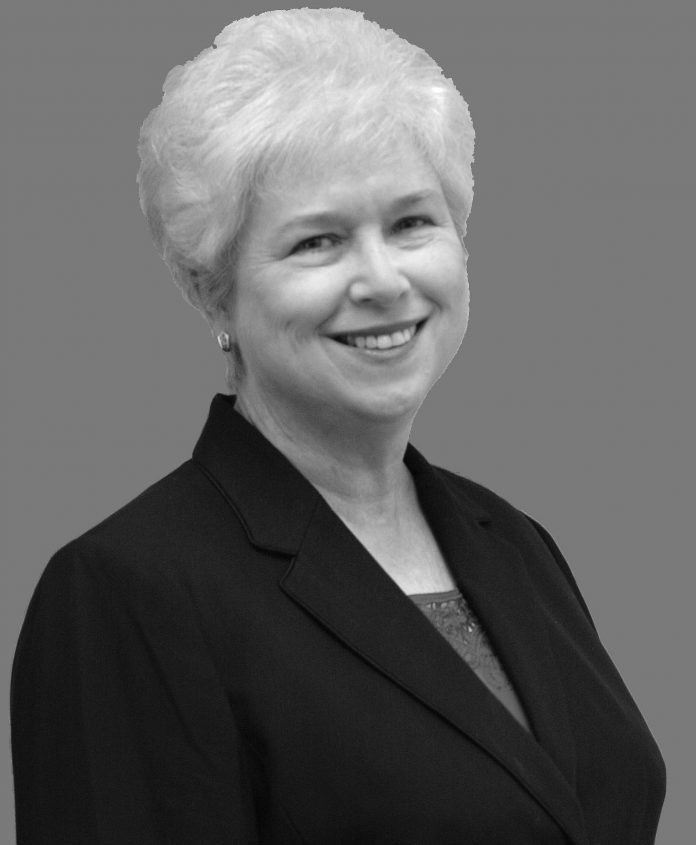Dr. Patricia Recupero, Care New England Health System’s senior vice president for education and training, has earned many accolades during her career as a psychiatrist. Most recently, she was presented with the 2019 Manfred S. Guttmacher Award by the American Psychiatric Association, the American Academy of Psychiatry and the Law, and the American Psychiatric Association Foundation for her achievements in forensic psychiatric literature.
As former president and CEO of Butler Hospital, where she began working in 1989, she was recently named President Emerita of Butler Hospital by the CNE and Butler Hospital board of trustees.
PBN: What is the main focus of your book, “Geriatric Forensic Psychiatry: Principles and Practice,” how will it be used, and by whom?
RECUPERO: The textbook focuses on connections between mental health and the law for older adults. We expect that the book will be helpful, not just to psychiatrists and geriatricians but also to elder-law attorneys, probate judges, elder advocates, social workers and other staff at hospitals and residential care facilities, and to primary care physicians whose practices serve older adults.
The book covers topics such as elder abuse, guardianship, testamentary capacity – the cognitive capacity to create a legally valid Last Will and Testament, patient safety, medication issues, and many other topics that are relevant to professionals who work with older adults.
PBN: What does comprehensive mental health care for seniors involve?
RECUPERO: Comprehensive mental health care for seniors requires addressing not just the diagnoses an older person may carry, but also the social determinants of health. For seniors, psychosocial issues are of critical importance in determining health outcomes and quality of life. We know, for example, that isolation and loneliness are major contributors to morbidity and mortality among older adults, and that adequate social supports and community supports are necessary in order to maintain an older person’s ability to live in the community for as long as possible, as opposed to institutionalization. Even in skilled nursing facilities and other residential care settings, a patient’s psychosocial needs – e.g., spiritual care, social support – are a critical component of comprehensive mental health care.
One of the core competencies of the American Board of Psychiatry and Neurology is a demonstrated commitment to ethical principles regarding end-of-life issues and palliative care, so clinicians serving individuals in the last phase of their lives should be well-informed about care planning and quality-of-life issues. It is also important for elder care professionals to advocate for the needs of their patients before legislative bodies.
Parity between general physical health care and mental health care is a critical issue at the moment. Enhanced protections for parity can reduce disparities related to discriminatory practices, such as requiring patients to pay for a greater portion of the doctor’s fee schedule for psychiatrists than for primary care physicians.
PBN: Do you think that Rhode Island does enough to provide elderly people with sufficient mental health care?
RECUPERO: Rhode Islanders are fortunate in that our state is among the best in terms of the accessibility of mental health care for the elderly. However, there is always room for improvement. Some issues arise on an individual, case-by-case level. For example, mild cognitive impairment may limit a patient’s ability to manage the administrative aspects of navigating services under a managed care plan, such as finding a provider who is a member of the panel. Too often in such cases, these types of problems go overlooked, and patients do not obtain the care that they need – not because such care is not available in R.I., but because the patient does not have adequate proactive supports in place to help them access and navigate mental and behavioral health services.
Finding an outpatient provider who accepts Medicare is often especially challenging, and many older adults in our state would benefit from increased support and assistance with this. Furthermore, issues that affect the elderly population on the national level are no less relevant here in R.I. The suicide rate among older adults remains troublingly high throughout the U.S., and our state ought to apply a more proactive approach toward identifying those who could benefit from care.
PBN: You’ve said there’s a need for collaboration between elder care attorneys and forensic psychiatrists, why is that?
RECUPERO: Legal and psychiatric issues often intersect for older persons, and the two fields – medicine and law – apply different but complementary approaches to addressing problems. As cognitive impairment progresses, an individual’s ability to make sound legal decisions may decrease. Psychiatrists can help to advise the older person’s attorney about issues such as prognosis and likely needs for care in the future, and attorneys can be helpful in advocating for the patient in terms of access to care, appealing insurance coverage denials, and so forth.
Elder-law specialists have identified a number of needs as being among the most pressing and the most common issues that arise when helping older clients: advance directives – e.g., “living wills,” Medicaid coverage, estate planning, Medicaid planning, guardianship, and alternatives and end-of-life issues. All of these subjects have relevant considerations from the perspective of psychiatry, as cognitive impairment and mental illness can both affect a person’s abilities in planning, reasoning and decision-making.
PBN: As Rhode Island’s population ages, how do you see its mental health needs changing?
RECUPERO: The needs of the older population in Rhode Island, of course, will continue to grow with the aging of the baby boomers. Although advances in medicine have enabled many of us to thrive well into our 70s and 80s, eventually some of us will need higher levels of care, and it is unclear whether the state will have enough inpatient beds to meet that need when the time comes. We will also need increased community supports – e.g., adult day programs at senior centers, more transportation options – so that our older citizens can be maintained safely in their own homes for as long as possible.
Elizabeth Graham is a PBN staff writer. She can be reached at Graham@PBN.com.













